Epileptology in Germany – in the Best Hospitals
Here you will find most technologically advanced epileptological hospitals in Germany
Focus of treatment:

Department of Adult and Pediatric Neurology, Epileptology
The Department of Adult and Pediatric Neurology, Epileptology offers the full range of services for the diagnostics and treatment of diseases of the nervous system. The department's team of doctors has rich experience and exceptional professional skills in the treatment of epilepsy, strokes, Parkinson's disease, chronic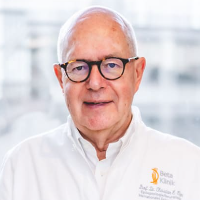


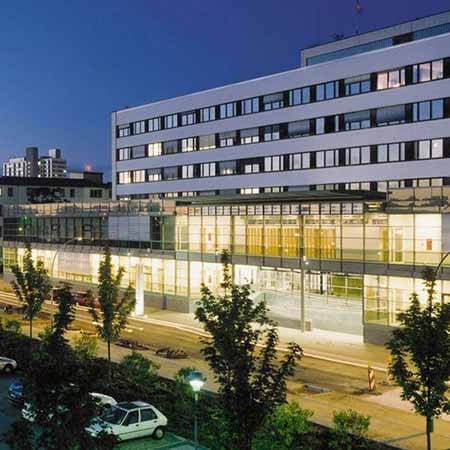
Department of Neurology and Epileptology
The Department of Neurology and Epileptology offers the full range of services in these medical fields. It specializes in the diagnostics and treatment of acute and chronic diseases of the central and peripheral nervous system, ranging from inflammatory diseases of the central nervous system, movement disorders and ending with n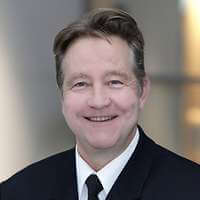



Department of Adult and Pediatric Epileptology
The Department of Adult and Pediatric Epileptology offers the full range of modern diagnostics and treatment of all forms of epilepsy. The department annually admits more than 5,000 patients and ranks among the largest specialized medical facilities of this kind in Germany. It provides comprehensive medical care programs, includ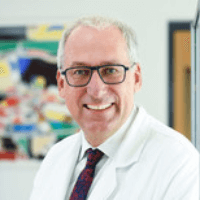


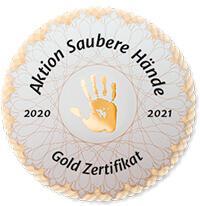

Epilepsy is a disorder of the central nervous system in which abnormal brain activity causes seizures or periods of involuntary unusual behavior. Epilepsy affects both men and women of all races, ethnic groups, and ages. Seizure symptoms, in turn, can vary widely. At least two unprovoked seizures are usually necessary to diagnose epilepsy.
Content
- Epileptology
- Epilepsy: peculiarities of the diagnosis
- Can epilepsy be cured?
- Surgery for epilepsy
- Why choose German clinics for the treatment of epilepsy?
- The cost of treatment in German clinics
- Epilepsy treatment in Germany with Booking Health
Epileptology
Epileptology is a branch of neurology that deals with the study and treatment of epilepsy in medicine. Practitioners in the field of epileptology usually specialize in neurology (less commonly in psychiatry), but receive additional training with an in-depth study of epileptic features, electrophysiology, neuroimaging, anti-epileptic pharmacology, genetics, and neurological rehabilitation of patients. This comprehensive training is essential for taking care of the patients with rare and severe forms of epilepsy, for whom standard therapy methods are not always the most efficient treatment options.
Among epileptologists, pediatric epileptologists are also distinguished. The treatment of children may differ significantly from epilepsy therapy in adults, since many special forms of epilepsy diagnosis occur in childhood, and treatment of epilepsy at this age may require different therapy options.
However, epileptology is studied with the goal of complete cessation or minimization of seizures in the absence of significant adverse effects of methods of therapy. The treatment of epilepsy in Germany usually starts with drug therapy. Although, it can take many months to find the best drug combination and to identify the regimen under the supervision of an epileptologist.
Epilepsy: peculiarities of the diagnosis
Epilepsy is a chronic neurological disorder characterized by recurrent epileptic seizures and their sudden onset. Depending on the form of epilepsy, seizures can appear as motor and sensory disorders. The seizures may be accompanied by impairment of consciousness of varying degrees. Some forms of epilepsy are manifested only by predominantly impaired consciousness and absences with minimal motor symptoms. The most dramatic are generalized tonic-clonic seizures, which imply fainting followed by general tension of the body.
According to the cause of origin, epilepsy can be either hereditary or acquired. The most common cause of acquired epilepsy is brain damage, for example, brain injury during complicated childbirth.
The diagnosis of epilepsy creates a sense of superstitious fear in society. This is associated with many factors, among which are the opinion about the incurability of epilepsy, skepticism concerning the modern methods of epilepsy control, "frightening" clinical manifestations of the disease (screaming, fainting, convulsions, etc.), fear of epilepsy resulting in neuropsychiatric disorders (including mental retardation), fear of diagnosis transmission by inheritance, an overwhelming awaiting of attack, patient's experience and inability to control it. Despite the frequency of development of psychological disorders in patients with epilepsy, their place in the medical picture and dynamics of the disease has not been clarified so far.
All of this is unreliable knowledge that creates confusion in society, resulting in people with epilepsy being overwhelmed and distant.
The main thing is that seizure control allows the patient to lead a normal life, almost no different from the life of the people around him. The exceptions are sleep, food, rest and medication regimen, complete elimination of alcohol intake, avoidance of potentially stressful or triggering situations. The key to success in the management of epilepsy is correctly chosen treatment regimen and regular medical supervision.
Very often, epilepsy can be accompanied not only by seizures, but also by other symptoms that the patient himself does not associate with epilepsy. Therefore, after medical examination, the epileptologist of the clinic will prescribe the following studies, if necessary:
- Electroencephalography.
- Video-EEG monitoring.
- Brain MRI.
- Laboratory tests.
Most tests can be done directly in the clinic chosen for treatment, which allows the epileptologist to accurately determine the patient's current condition, the amount of therapy required, and, ultimately, to achieve best possible treatment results.
Can epilepsy be cured?
There is often a question about the kind of treatment efficient for epilepsy management. Thanks to the success of modern pharmacological medicine, with the use of drug therapy, seizures can be sufficiently controlled in 70 – 75% of cases. Thus, most cases of epilepsy are considered treatable. However, it is important to remember that different forms of epilepsy have different courses and prognoses. There are hard-to-treat forms of epilepsy characterized by early onset (first 3 years of life), high seizure frequency, motor dysfunction, and seizure resistance to anti-epileptic therapy. Given this fact, the doctor and relatives must understand that the duration of the treatment process of mild and severe forms of epilepsy is different.
The main goals of treatment of mild forms of epilepsy are complete control of epileptic seizures, the absence of side effects after therapy, and the lowest cost and simplicity of treatment. In the case of poorly treatable epilepsy, the doctor is usually forced to use combinations of two and sometimes three types of medications to provide maximum reduction in seizure frequency, achieve tolerable side effects, and minimize the effects of epilepsy on cognitive function.
With rare exceptions, epilepsy should be treated in all cases of incidence. The need for treatment is usually conditioned by frequent seizures forming a repetitive cycle with each preceding seizure "paving the way" to the next one. Only adequate, timely therapy can break this pattern. Delaying the epilepsy treatment can lead to dramatic consequences, including decreased memory, intelligence, and in children, the development of mental retardation and motor underdevelopment. In most cases, the earlier the treatment begins, the better its result is and the faster the recovery after the treatment is.
The basic principles of epilepsy treatment that doctors adhere to in German hospitals are regularity, at least 3-month long duration, and individually prescribed therapy scheme.
It is important to note that there is no universal type of therapy that is equally effective for different types of seizures and different forms of epilepsy. The drug that helped one patient may be completely ineffective in the case of another patient.
The choice of medication should be made by a doctor based on a properly diagnosed particular form of epilepsy. To avoid the aggravation of clinical manifestations of the disease, patients should never self-medicate.
Surgery for epilepsy
Surgery for the treatment of epilepsy in German neurology clinics for children and adults is used in cases where conservative methods are powerless or known to be ineffective (when epileptic seizures are associated with tumors, vascular abnormalities, etc.).
If the diagnosis reveals that a serious disease provoking epilepsy seizures requires treatment in the form of surgery, the patient is sent to the appropriate departments of German clinics that specialize in the treatment of brain and spinal cord tumors, treatment of cancer metastases to the brain, vascular abnormalities, hydrocephalus, etc. However, in the vast majority of cases, surgery is performed by surgeons who specialize in the treatment of epilepsy. At the same time, depending on individual indications, both invasive and less traumatic medical interventions can be offered in German neurology clinics.
The most radical methods of surgery for epilepsy involve removing the area of the pathological focus (if it is identified), which is responsible for the development of the seizure. Such surgical interventions are quite effective, but may not be performed in all patients. For example, the resection of a limited area is not possible in cases where we are talking about multiple cells, or pathological activity localized close to the vital organs. In such cases, more sparing medical interventions are usually indicated in German hospitals. These include:
- Corpus callosotomy (it is a rather old method of treating epilepsy based on interrupting the circulation of pathological impulses between the hemispheres of the brain).
- Multiple subpial transection (this technique allows to block the distribution of the pathological impulse in one hemisphere).
- Deep brain stimulation.
- Vagus nerve stimulation (implantation of a special generator into the subclavian space, which transmits impulses through the vagus nerve that affects pathological pattern).
Why choose German clinics for the treatment of epilepsy?
German neurology clinics offer the full range of the most modern medical services, including thorough diagnostics, conservative and surgical treatment, as well as neurorehabilitation for all types of epilepsy. Among the therapeutic options available for the treatment of epilepsy, the use of the latest medications with an increased pharmacological effect, many of which are currently not yet available in other countries, are implemented into treatment regimens in clinics in Germany. It is also worth paying attention to the intensive rehabilitation methods in German clinics for particularly complex cases of epilepsy.
Germany has the German Society of Epileptology, which consists of German doctors and clinics specializing in studying and treating epilepsy. The association develops new methods for the treatment of epilepsy, tests the latest generation drugs, does extensive medical research, publishes its work and provides information to patients with epilepsy, regularly arranging conferences to share experiences and much more.
Epilepsy clinics are run by highly qualified epileptologists, who use state-of-the-art technology and drugs in the treatment of different types of epilepsy.
You can choose a medical facility for treatment from the best German hospitals on the Booking Health website.
The cost of treatment in German clinics
Epilepsy treatment in German neurology clinics can take place on an inpatient or outpatient basis. The duration and cost of epilepsy treatment in German clinics depend on the medical specifics of the diagnosis and a chosen treatment method. The course of epilepsy treatment in German clinics is often designed in several visits.
The average prices for epilepsy treatment in German hospitals are listed below:
- The price of diagnosis and conservative treatment starts from 8,151 EUR.
- The cost of treatment in Germany with surgery starts from 28,886 EUR.
- The cost of treatment in Germany with deep brain stimulation starts from 46,748 EUR.
Feel free to contact Booking Health if you want to get a free consultation on the cost of treatment in German clinics.
Epilepsy treatment in Germany with Booking Health
Booking Health organizes diagnosis and different types of treatment for epilepsy, as well as intensive rehabilitation after the treatment in the best clinics in Germany.
Booking Health cooperates directly with German clinics making the whole process of treatment organization so much easier. Besides, we help with the translation of the medical documents, provide visa support and assistance throughout your treatment journey, and, also, always give our clients a cost of treatment guarantee.
We will contact you and answer all of your questions, if you fill in the request form on the Booking Health website.
Authors: Dr. Vadim Zhiliuk, Dr. Sergey Pashchenko

